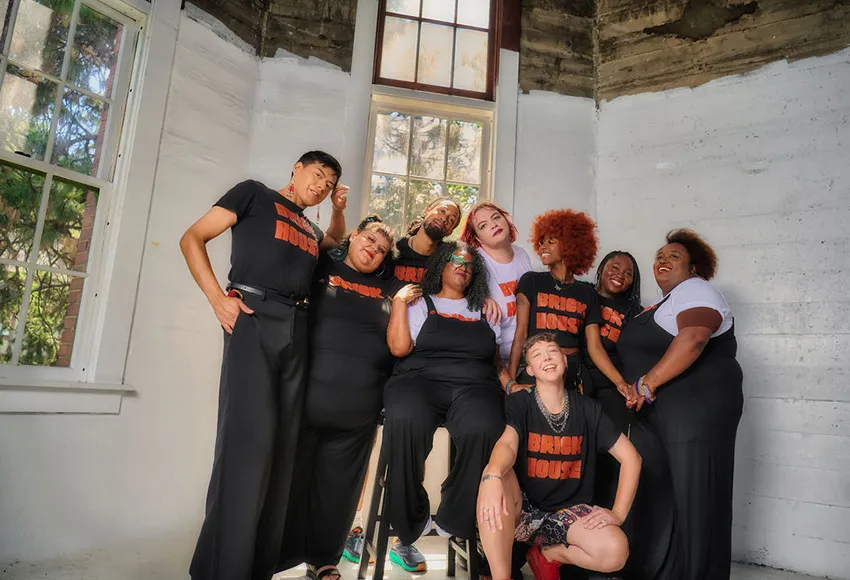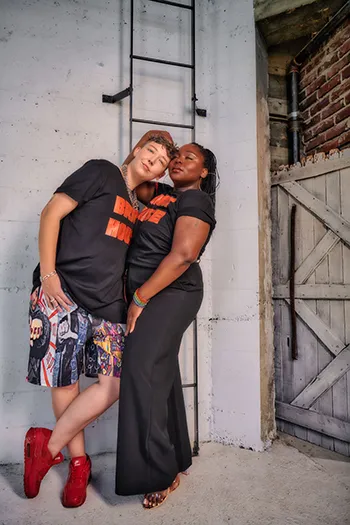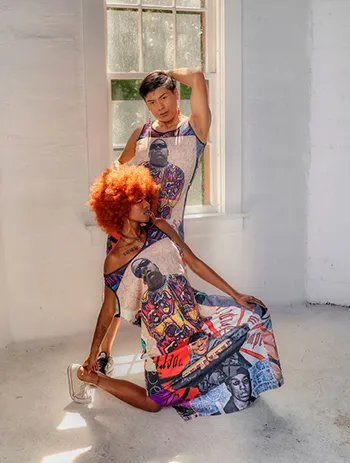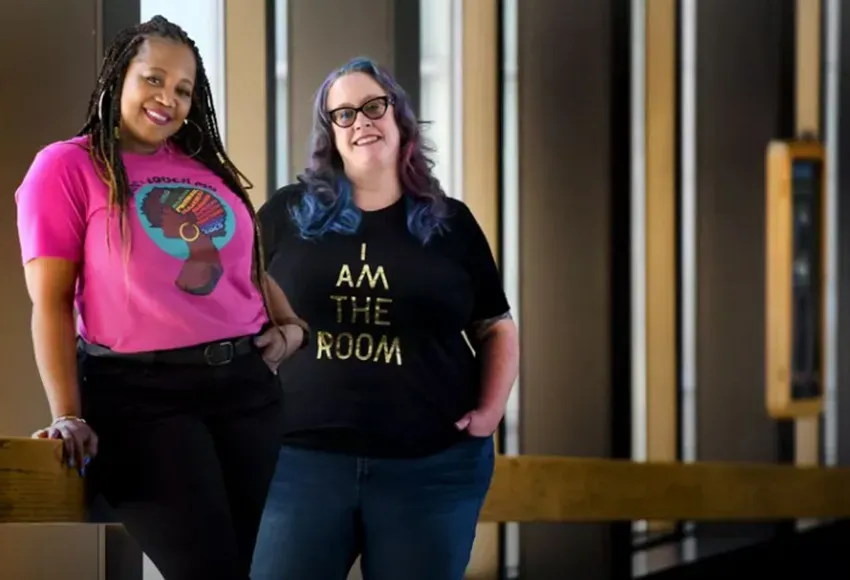Kim Blessing and Delena Mobley, co-owners of the fashion brand dom+bomb, became good friends while working at a public health accounting firm. They had talked about opening a business together before 2020, but the pandemic pushed the two to apply for their business license. By 2021, they had quit their corporate jobs, and by April 2022, they launched their first line.

"We had talked a lot about what business we wanted to do, and we really wanted a BIPOC- and Queer-friendly space – we didn't really want to run a bar," Blessing said. "We're both plus sized [and] we've always struggled with finding cute clothes that fit, [so we thought] why not just make our own?"
With sizes ranging from 5XL to down to XS, their brick-and-mortar store in Spokane houses a variety of Queer staples, like wide-leg overalls, sheer-neck tops, chainmail earrings with different Pride flag colors, and black joggers (Mobley's favorite). The two design the clothes they sell, curate from other independent designers, and offer gender-affirming styling.

Clientele looking to stand out
There seems to be demand for such styling. Mobley has noticed that the people who come to them are looking to express themselves in unique ways. They have clients in varying stages of transition who come to them for styling tips, and one client asked for ways to subtly express their asexuality through their wardrobe. Blessing said that gender-affirming styling usually looks like hiding or accentuating curves or adjusting dimensions in height, like the length of sleeves or pants.
When the two started out, they decided to create their own sizing chart. They put out a call for models to get their measurements taken, try on the clothes, and then give feedback on it. The call brought in 80 models, at least half of whom were Trans and Nonbinary.
"We think we've probably got one of the largest sizing data banks for the Queer community, probably in the country," Blessing said. "We've learned so much about what people are looking for in their clothes, how to adapt clothing to help someone really express their gender in a way that makes them feel great."
"Being in Spokane, people kind of fall into the same kind of styling habit, so people that are coming to us want to do something different," Mobley said. "A lot of our clients, they attract attention anyway. So it's like, 'If you're gonna look, then I might as well give you something good to look at.' People want to stand out and feel really confident."

Fashion as a mode for creativity
They have the background to give out that styling advice, too. Mobley started making their own clothes when they were in middle school.
"I went to school with a lot of wealthy kids, but I was not one of them. In order to stay in the loop of things, I would make Bermuda shorts or a pencil skirt and then wear them to school the next day," Mobley said. "I would babysit and take my money and go to Woolworth or the local fabric store, and make my own clothes the night before wearing them."
During the pandemic, the two started making masks they would want to wear themselves, using fabric from local stores. While being a single mom and pursuing higher education, Mobley said they became attached to that creative expression.
"[Making masks] brought up those old feelings of what it felt like to make something, see people wear it, and wear it myself," Mobley said.
Community support
"People have just been really, really welcoming to us," said Blessing about the reception they have received.
Since starting the brand, Mobley and Blessing have also developed community partnerships with Spectrum Center and Odyssey Youth Movement, both LGBTQ+ centers in Spokane. They've also made connections with the Carl Maxey Center, Spokane's Black community center.
Those connections have been an effective way to reach their communities, Blessing says. Their first major event was Spokane Pride, the first since the pandemic.
"Anywhere you go, even down to rural areas, there are Queer and Black people everywhere, so it's a matter of really connecting. They're hungry, especially in places like this that could be considered more of a desert of community."


